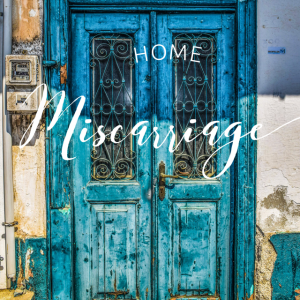 Despite miscarriage being a common part of reproductive health, what to expect during a miscarriage is shrouded in mystery due to our culture’s discomfort and secrecy around the subject. Miscarriage is defined as a pregnancy that ends before 20 weeks, though the vast majority will happen before 12 weeks. Depending on which statistic you read, it’s thought that about 20-30% of pregnancies end in miscarriage, making it a normal part of the reproductive life cycle for many people.
Despite miscarriage being a common part of reproductive health, what to expect during a miscarriage is shrouded in mystery due to our culture’s discomfort and secrecy around the subject. Miscarriage is defined as a pregnancy that ends before 20 weeks, though the vast majority will happen before 12 weeks. Depending on which statistic you read, it’s thought that about 20-30% of pregnancies end in miscarriage, making it a normal part of the reproductive life cycle for many people.
When someone shows signs of potential miscarriage early in pregnancy, it is common for her care provider to send her to a hospital or clinic for an ultrasound, blood work and discussion of medical options. Much like what we have done with birth, we have medicalized miscarriage to the point of treating it as though it is, in and of itself, a medical event.
While certainly issues can arise in miscarriage that make clinical / medical treatment appropriate, just like in birth, this is not always the case, and it is certainly an option to let things follow their natural course and reserve medical options and investigations for more complicated scenarios.
Many of people express an interest in miscarrying naturally at home and prefer less clinical approaches once they know it is an option. However, many at first have no idea it is an option to take a less clinical route, or if they do, feel unsure about to where to look for for the information, support and confidence since there is such a lack of conversation around physiological miscarriage (or miscarriage in general!) in our culture. To explore a variety of options, you can check out my article on Informed Choice in Miscarriage (& Abortion).
Here are some general things to consider when having a miscarriage at home:
When will it happen?
If you were not experiencing miscarriage symptoms, but discovered that your pregnancy has ended through a routine ultrasound, clinicians will often tell you “come back if you haven’t passed anything in a few days”. This can sometimes give the impression that it is inherently abnormal for the miscarriage to take some time to complete. In a physiologic miscarriage, it may take several days or even weeks for the body to let go of the pregnancy once it has ended, and while the body goes through the hormonal changes and physical process of miscarriage required to let the pregnancy go.
What will it feel like?
Miscarriage often begins with mild cramping and light spotting. Keep in mind that these milder symptoms can happen in very early pregnancy and if they pass, do not necessarily mean you are miscarrying. Some people experience some light spotting in early pregnancy and go on to carry their baby’s to term, so if you experience a bit of this, keep an eye on it, and check in with a medical provider if you are concerned about your well-being, but know it does not necessarily always mean a miscarriage is imminent.
Over the course of a few hours of days in pregnancy that is miscarrying, the cramping and light bleeding will generally increase to more intense cramping and heavier bleeding. The cramping can range from strong menstrual cramps to more labour-like in strength, and people are often surprised with how strong the sensation of the uterus contracting is. This more powerful part of the process will typically last a couple of hours, and then gradually ease up again. It can be good to have someone on-call for you for this strong part of the process for reassurance and comfort.
What can I do for comfort?
A warm bath, heating pad, and staying hydrated with water, warm tea, or bone broth can be really helpful while the cramping is strong. Take long, slow, deep breaths into your abdomen and exhale slowly. Focus on relaxing your forehead, your jaw, your shoulders, your abdomen, your pelvis, your legs. Some people find Tylenol helpful as well. If you have access to a TENS unit (which your doula may be able to lend you, if you have a doula), this can provide some additional comfort, as well. If you do have a doula, keep in touch with her over the phone or invite her over to help you feel relaxed and supported.
What can I expect in terms of bleeding?
While your body is releasing the pregnancy, there will likely be a period of heavier bleeding and clotting. It can be really reassuring to have someone experienced with birth or miscarriage either with you in person or reachable by phone in case you are concerned about blood loss and clot size during this heavier time.
After the initial period of heavy bleeding, things should gradually begin to ease up. You may continue to lightly bleed for several days or even a couple of weeks, getting lighter and lighter until it stops completely.
Here are some additional resources on what to expect for bleeding and when to seek extra medical help:
Post-Miscarriage Recovery
Having a miscarriage for your body is like having a mini labour, birth, and postpartum period. Your body is undergoing big changes in physiology and it is important to be gentle on yourself and stay well supported and nourished in the weeks that follow, so your body can adjust smoothly and strongly. Plan to take at least a few days off of work, and much more if you can! Plan to get help with older children, and take it easy as you recover. Please read my post Nourish Your Miscarriage for tips on caring for yourself during this experience.
Get Support For Your Miscarriage
Have someone in your home who can support you while you are miscarrying who can help you stay nourished and comforted. It’s also a good idea to have a person who can care for any older children you may have during the process. Whether it is a partner, a family member, a friend or a doula, it is a good idea to have someone with you for support.
I provide free miscarriage support for clients who have hired me for a planned full-term birth, and charge a small fee for non-clients. You can review my miscarriage support options here, or ask your own doula if she has a way of supporting you! Doulas are most well known for their work in childbirth, but doulas aren’t just for birth! They can support people through a wide variety of reproductive needs.
Learn To Support Miscarriage
If you are a doula and have not been trained to support your clients through miscarriage, check out my continuing education class on Miscarriage For Doulas so you can broaden the spectrum of services you can offer to your clients. Support for miscarriage is lacking in our communities and it is a role that is very, very needed.




